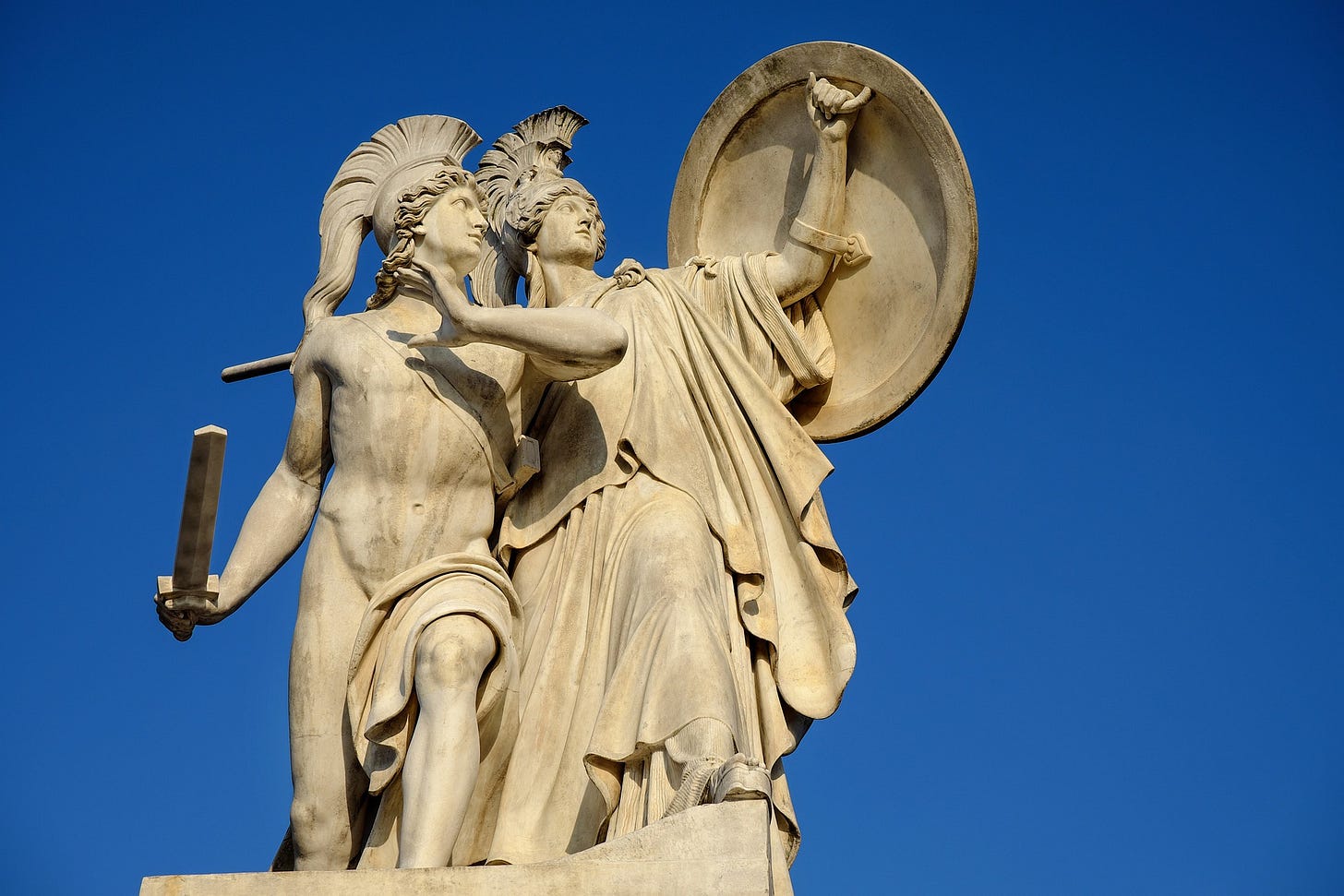A Virtuous Life Is a Happy Life
Virtue protects you from decisions and actions you will regret...
“We have separated this perfect virtue into its several parts. The desires had to be reined in, fear to be suppressed, proper actions to be arranged, debts to be paid; we therefore included self-restraint, bravery, prudence, and justice – assigning to each quality its special function. How then have we formed the conception of virtue? Virtue has been manifested to us by this man’s order, propriety, steadfastness, absolute harmony of action, and a greatness of soul that rises superior to everything. Thence has been derived our conception of the happy life, which flows along with steady course, completely under its own control.”
– Seneca
We all have choices in how we live our lives. Every moment and every decision we make is an opportunity for us to gain control of our lives. Or, as with most people, we can let our baser instincts (our monkey and lizard minds) drive the car and rationalize our behavior after the fact.
Virtues are the behaviors I work to cultivate in my life and my decisions. They are the guard rails that help me identify right from wrong actions in myself and others. They are not a magic roadmap to happiness; if anything, they require hard work, difficult decisions, and forgoing the temptations of immediate gratification.
I have chosen to live my life according to the Stoic virtues of Justice, Temperance, Courage, and Wisdom (Prudence in Stoic terms). Likewise, in myself and others, I seek to spot and avoid their counterparts (Injustice, intemperance, fearfulness, and willful ignorance).
Living a life of virtue can be a challenge, while living a life of vice is easy, at least initially – that alone signals to me what is proper behavior. When I am tempted to take the easy path, I need to examine both the path and my motivation to ensure that I am making a virtuous choice.
I will live the virtue of temperance by reminding myself that my desires will lead me astray if I let them, by remembering the words of Seneca that vices can masquerade as virtues – especially pride, and to the extent that I do indulge my emotions, always to remember the maxim of “restraint in all things.”
I will live the virtue of courage by acting when action is called for and restraining myself when it is not. It is not courageous to take foolish risks, act without thought, take risks for reward or recognition, or do my duty. Courage comes from overcoming my fear of harm to my physical or emotional self and taking the actions that I believe are correct, regardless of whether anyone is ever aware of them. Also, I will remember that what is called courage today is in Latin “fortitudo” and that true courage is endurance and fortitude against adversity without complaint.
I will live the virtue of wisdom by thinking before I act, considering the immediate results of my actions and their derivatives. I will remember that wisdom comes from acknowledging that what I don’t know is even more important than what I think I do know and that all knowledge is, at best, a poor language for describing reality – it is not reality itself.
I will live the virtue of justice by remembering that the core meaning of justice is fairness and the settlement of debts, not blind adherence to rules or laws. Stoic justice is about fairness and the golden rule; thus, I will seek just solutions in all my interactions with others and will remember that justice has and continues to be perverted into a means of enslaving others.
I believe that happiness comes from living a virtuous life – not from health, prosperity, fortune, or any other external condition; in other words, my happiness comes from what I do, not what I have. I will fight the temptations offered by those ignorant of virtue or those who have fallen into the path of evil and who actively work to corrupt others.


